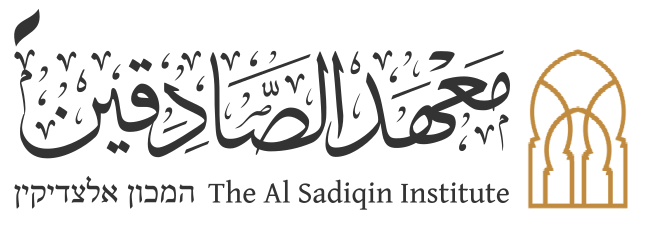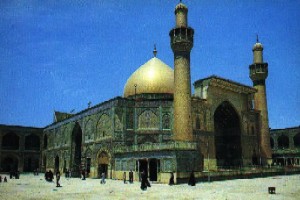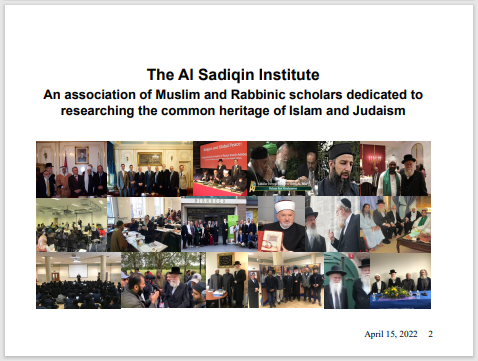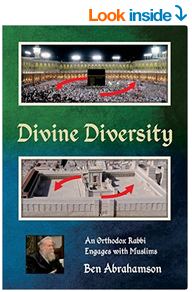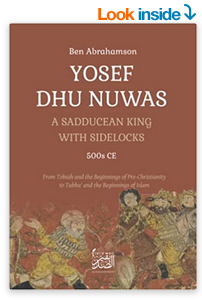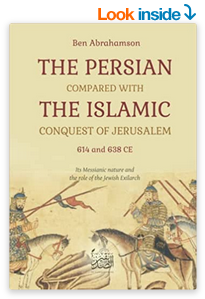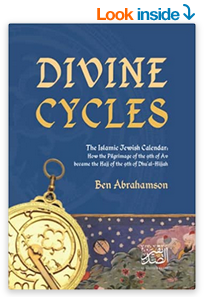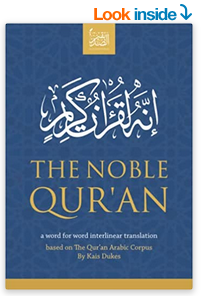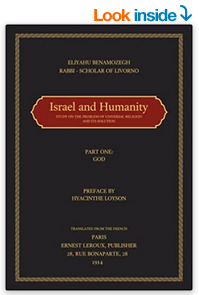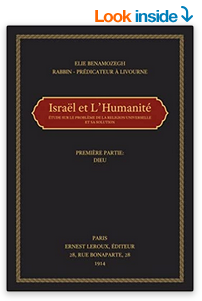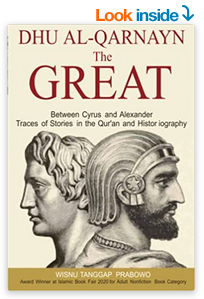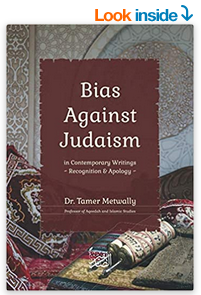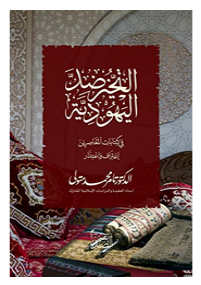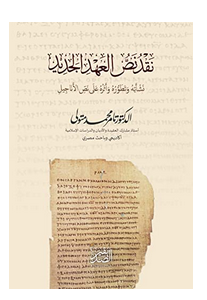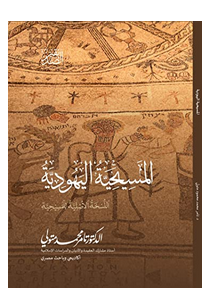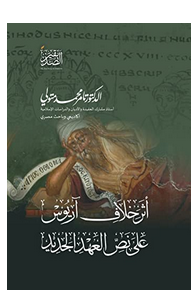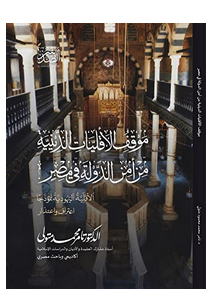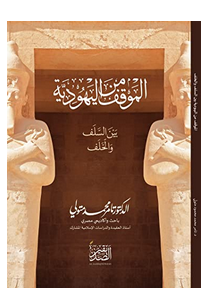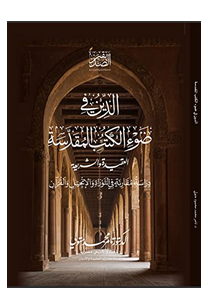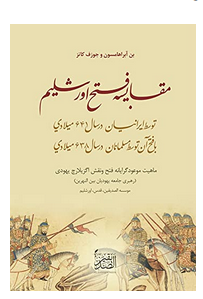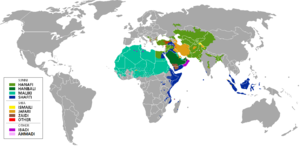Main Page
|
سُوۡرَةُ البَقَرَة وَلِكُلٍّ۬ وِجۡهَةٌ هُوَ مُوَلِّيہَاۖ فَٱسۡتَبِقُواْ ٱلۡخَيۡرَٲتِۚ أَيۡنَ مَا تَكُونُواْ يَأۡتِ بِكُمُ ٱللَّهُ جَمِيعًاۚ إِنَّ ٱللَّهَ عَلَىٰ كُلِّ شَىۡءٍ۬ قَدِيرٌ۬ ١٤٨
2.148 To each is a goal to which Allah turns him; then strive together (as in a race) Towards all that is good. Wheresoever ye are, Allah will bring you Together. For Allah Hath power over all things. سُوۡرَةُ آل عِمرَان يُؤۡمِنُونَ بِٱللَّهِ وَٱلۡيَوۡمِ ٱلۡأَخِرِ وَيَأۡمُرُونَ بِٱلۡمَعۡرُوفِ وَيَنۡهَوۡنَ عَنِ ٱلۡمُنكَرِ وَيُسَـٰرِعُونَ فِى ٱلۡخَيۡرَٲتِ وَأُوْلَـٰٓٮِٕكَ مِنَ ٱلصَّـٰلِحِينَ ١١٤
3.114 They believe in Allah and the last day, and they enjoin what is right and forbid the wrong and they strive with one another in hastening to good deeds, and those are among the good. سُوۡرَةُ یُونس فَإِن كُنتَ فِى شَكٍّ۬ مِّمَّآ أَنزَلۡنَآ إِلَيۡكَ فَسۡـَٔلِ ٱلَّذِينَ يَقۡرَءُونَ ٱلۡڪِتَـٰبَ مِن قَبۡلِكَۚ لَقَدۡ جَآءَكَ ٱلۡحَقُّ مِن رَّبِّكَ فَلَا تَكُونَنَّ مِنَ ٱلۡمُمۡتَرِينَ ٩٤
10.94 But if you are in doubt as to what We have revealed to you, ask those who read the Book before you; certainly the truth has come to you from your Lord, therefore you should not be of the disputers. |
Mission Statement
As-salamu 'alaykum wa rahmat-Ullah wa barakatuH
The Alsadiqin Institute is an association of Muslim and Rabbinic scholars of history and jurisprudence. The institute is committed to promoting research among our scholars, and making the fruits of that research available in simple terms, accessible to the general public through books, booklets, seminars and conferences, open to the general public.
The emphasis of our research is historical rather than theological, although conducted by deeply religious scholars. The focus is to faithfully connect traditional religious narrative to a more inclusive, broader, historical framework. The goal is to apply this deeper understanding in the field of modern jurisprudence and human relations.
As a community service, the Institute publishes a series in news outlets entitled, “Giving Voice to Muslims who Seek Peace” in order to raise awareness in of the peaceful nature of Islam; engages in public speaking and diplomacy; and hosts vibrant discussions on social media.
The institute is firstly a religious organization. Insha'Allah, it strives to conform in every way to sharia and accepted convention. It is bound to operate within the general precepts of Ahlu-s-Sunnah wa-l-Jama'ah, the four Madhabs and Jafari fiqh, and Halachah va-Minhag Avosenu. The institute does not support mixing of religious practices or concepts. It encourages traditional religious education, and cooperation between faith communities "as if in a race for virtue."
The visitors to Al-Sadiqin's website include both Muslims and Jews looking for a more authentic conceptual framework to understand the history of Islam and the Banu Israel: one that doesn't presume a fundamental, eternal opposition between them.
Sign up for our AlSadiqin Newsletter: http://www.alsadiqin.org/events/
Contents
Alsadiqin Institute
Founder Rabbi Ben Abrahamson uses a historiographical approach in his work, with a focus on the identities of the Jews, Christians and proto-Muslims in Arabia at the time of Islam's inception, and how they related to each other. This work is continued by the Institute.
Courts
Al Sadiqin provides expert witnesses concerning Halachic and Shari'ah law to religious courts. This includes the interaction of these legal systems with each other, and their interaction with civil law. This also includes the relationship of religious and civil law from an historical perspective.
- Al Sadiqin advocates for Islam and Muslims to be recognized and achieve their proper, respected place in Jewish law as Noahides.
- Al Sadiqin advocates for symmetric jurisprudence for Jews and Christians under Islamic law.
- Al Sadiqin seeks to educate jurists and the public in general about ways in which Islamic and Jewish law can co-exist with civil law and secular society.
Al Sadiqin is participating in laying the groundwork necessary to create a Joint Interconnected Religious Court to fulfill the model of Ṣaḥīfat al-Madīnah (the Constitution of Medina). It draws from the rich heritage and broad experience of the Ottoman millet system. The JIRC is seen as the first step in creating an regional Ummah Wahida (Islamic Union).
Although Al Sadiqin's work with courts is only one facet of the Institute, the goal of providing accurate, binding and sourced material, leaving out religious rhetoric and theological debate, is something that guides all the research done at the Institute.
Global ethics
Al Sadiqin actively participates in Religious Diplomacy in areas of conflict in the Middle East, the European Union and Africa.
The institute offers an intellectual framework that can assist in conflict resolution in line with Islamic and Judaic values. Islamic Deen, seen as the equivalent of Rabbinic Noahism, is offered as an alternative to humanism and relativism as foundation for peace.
The institute sees as essential that conflict resolution take place in line with cherished classic and scriptural values that Muslims and Jews hold dear. Otherwise, agreements imposed from without will be resented by local populations, deemed as imperialistic, quasi-colonial interference. Peace agreements, both large scale and small, that organically grow out of our scriptures and shared national heritage are truly the key to lasting peace.
AlSadiqin Press
Al Sadiqin is committed to providing the finest quality publications for the scholar and layperson alike.
Staff
- Ben Abrahamson - Director and Founder. Rabbi Ben Abrahamson is Rabbinical Historian and Director of Al Sadiqin Institute;
LinkedIn
FaceBook
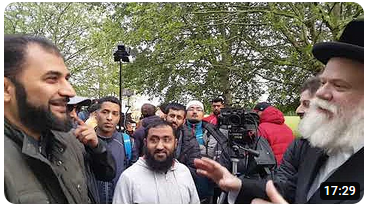
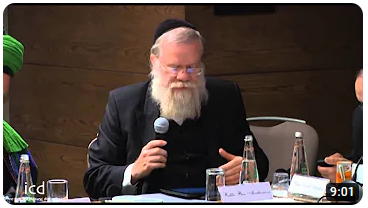
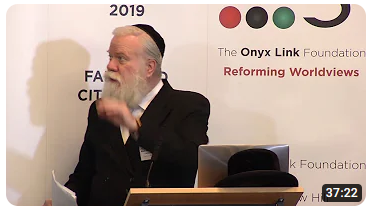
Community Forum
- Discussion Forum The online community of Al-Sadiqin. Questions and discussions about the common shared heritage of Islam and Judaism, on FACEBOOK.COM
- Ben Abrahamson's Notes A collect of notes derived from the facebook discussions
- Alsidiqin Press on academia.edu A collection of Journal Articles and research on ACADEMIA.EDU
- Research Notes on facebook.com A collection of old research notes being moved to academia.edu.
- Islam and Judaism: the early years A collection of old research papers being moved to academia.edu.
- Alsadiqin Youtube Channel
- Alsadiqin Twitter
Sign up for our Al Sadiqin Newsletter: http://www.alsadiqin.org/events/
Learning Resources
Ben Abrahamson's NotesRecent Additions to the LibraryPrimary Sources
OrganizationsThe major madhabsIn the modern era, w:Sadiq al-Mahdi, the former Prime Minister of Sudan, defined the recognized schools of Muslim jurisprudence as eight specific schools. The Amman Message, a three-point ruling issued by 200 Islamic scholars from over 50 countries, officially recognizes those eight legal schools of thought.
Madhab schools of jurisprudence are each named after the classical jurist who taught them. The four primary Sunni schools are the w:Hanafi, w:Shafi'i, w:Maliki and w:Hanbali rites. The w:Zahiri school remains in existence but outside of the mainstream, while the w:Jariri, w:Laythi, w:Awza'i and w:Thawri have become extinct. The extant schools share most of their rulings, but differ on the particular practices which they may accept as authentic and the varying weights they give to Qiyas (analogical) reason and pure reason. |
The schools of lawIndividual leaders, sorted by years of activityMajor Islamic groupsSee also
|
